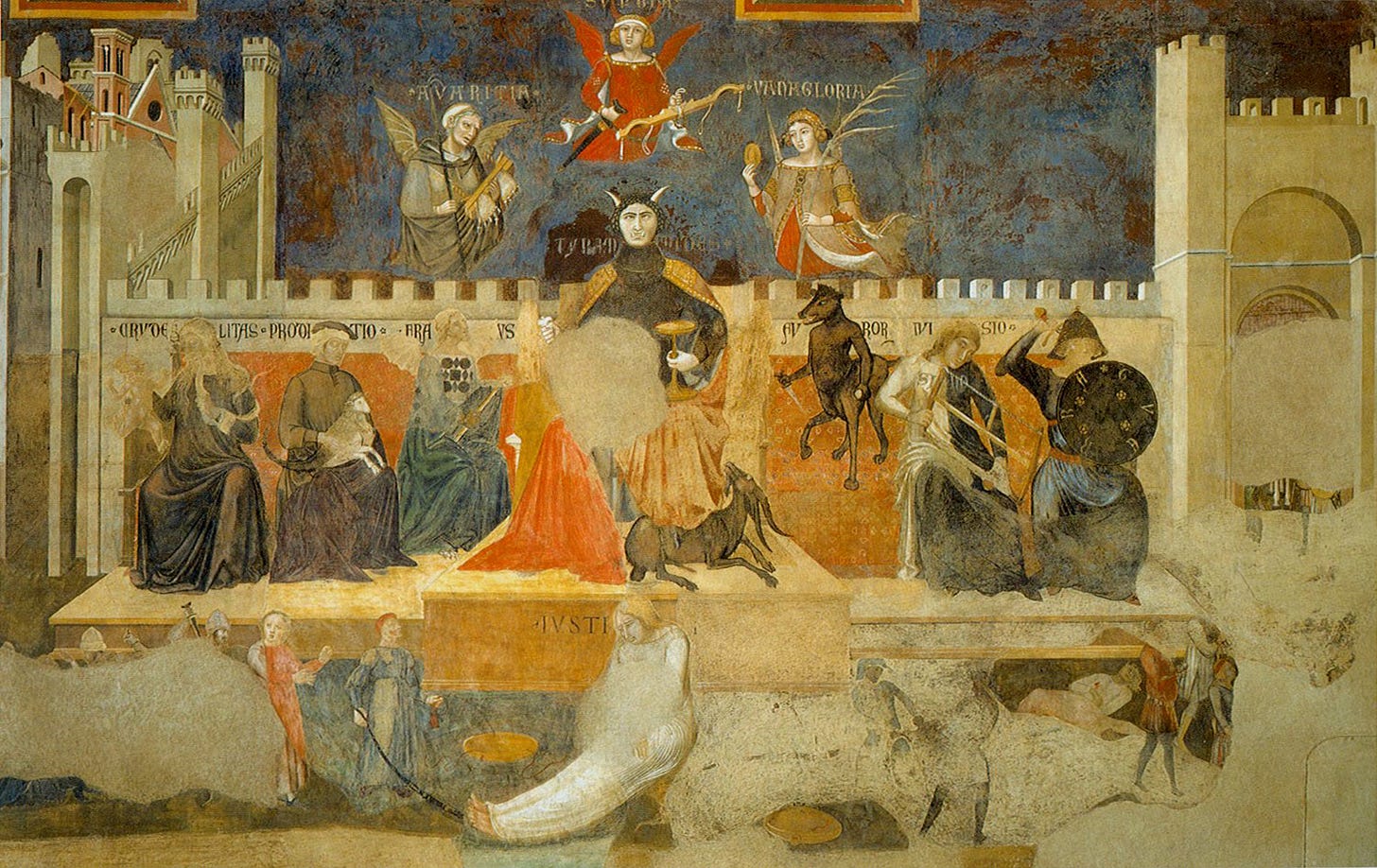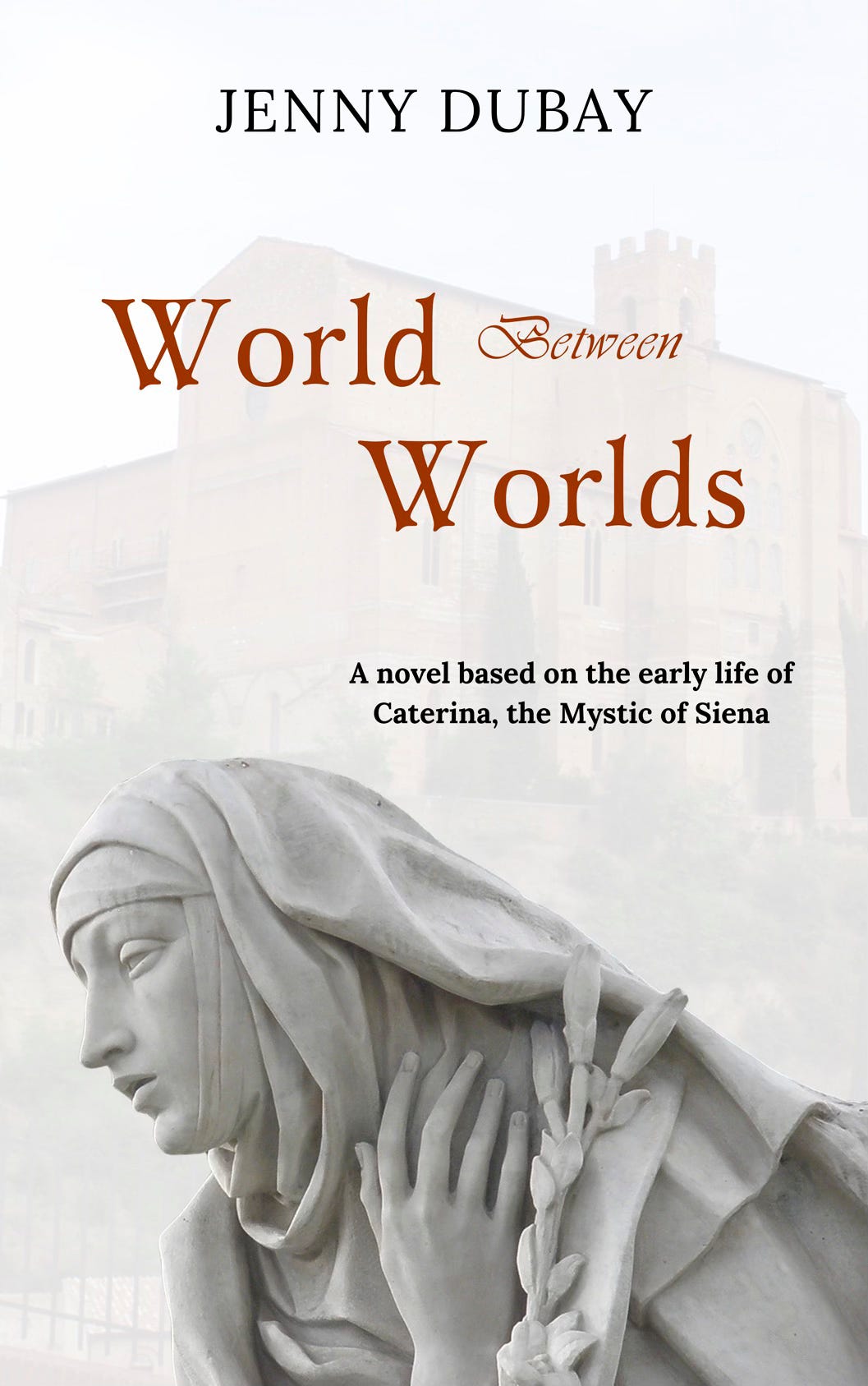The Problem with Pride—and its Remedy
The toxic pride of another doesn't have to impact our spirit our burden our hearts if we dwell within the cell of self-knowledge.
We all know the destructive nature of pride, the king of all sins. Perhaps we’ve had to live with its evil consequences by enduring the traps it sets: blame-shifting, falsifying reality, and other toxic techniques aimed to gain power and control over others.
The Cell of Self-Knowledge
One of St. Catherine of Siena’s most famous sayings is “I am she who is not. God is the One Who Is.” This is a humble recognition that we are nothing without God—we wouldn’t even exist if He hadn’t loved us into existence. All good we have ever done or ever will do, every blessing we have ever received, has come from Him alone. Without His merciful love and bounty, we would cease to exist.
From that insight, Caterina develops a theology she calls the cell of self-knowledge. The cell—or house—she envisions contains two rooms: knowledge of self and knowledge of God. It’s necessary to have both rooms in our cell of self-knowledge, because each season the other. By dwelling in the cell of self-knowledge, we find a true knowledge of who we were created to be and of God’s divine mercy within all aspects of our lives. When we view ourselves in the light of God, we come to the humble and peaceful knowledge that we truly can do all things through Christ who strengthens us (Phil. 4:13).
You will find humility in the knowledge of yourself when you see that even your own existence comes not from yourself but from Me, for I loved you before you came into being. And in My unspeakable love for you I willed to create you anew in grace.
(God the Father to Caterina, Dialogue 4)
Pride is the opposite of she who is not. It opposes true knowledge of self and instead leads us to imitate God in a twisted way. We see this at the beginning of time, when our first parents were led astray through their pride of wanting to be like God rather than obeying God and being submissive to His will. As Fr. Reginal Garrigou-Lagrange wrote in The Three Ages of the Interior Life:
Pride is a bandage over the eyes of the spirit, which hinders us from seeing the truth, especially that relative to the majesty of God and the excellence of those who surpass us … Pride thus perverts our life as one would bend a spring; it hinders us from asking light from God, who consequently hides His truth from the proud. Pride turns us away, therefore, from the affective knowledge of divine truth, from contemplation, to which humility, on the contrary, disposes us.
Nearly 600 years earlier, St. Caterina heard God the Father tell her:
All the vices are seasoned with pride just as the virtues are seasoned and enlivened by charity … For those who love themselves inordinately are bereft of My love because they do not love Me … Selfish love deprives the soul of My charity and clothes her in the vice of pride whence is born every sin because of its foundation in that self-love …
In the same passage (Dialogue 128), the Father goes on to address those of prideful inclination:
You have become like a ferocious beast without any fear of Me. You devour your neighbors and thrive on dissension … O accursed pride, outgrowth of selfish love! How you have blinded their mind’s eye! They seem to themselves to be tender and loving, but you have made them cruel.
Pride is folding inward, a closing of oneself within oneself. But, since we are not, this naturally results in depravation and despair, a self-focused view that excludes the good of others just as it excludes God’s spirit from moving freely within. It’s terribly difficult for a person drowning in the sin of pride to come up for air and begin to live a virtuous life, because the virtue needed to counter pride is humility.
A life dominated by pride is grievously sterile.
(Fr. Reginald Garrigou-Lagrange)
The Great Remedy
The Blessed Mother is our model for perfect humility. In her, we see the reflection of truth: we truly can become the person God created us to be when we live in the bowed simplicity of submission to God’s will and an acknowledgement that we are not—only God is. And therein lies our strength.
The great remedy for pride is to recognize practically the majesty of God … The remedy for pride is to tell ourselves that of ourselves we are not, that we have been created out of nothing by the gratuitous love of God … The remedy for pride is also to tell ourselves that there is in us something inferior to nothingness itself: the disorder of sin and its effects.
(Fr. Reginald Garrigou-Lagrange)
The only way to reach this humility of heart and of mind is through purification, which is going through the fire of spiritual and psychological healing. This comes about in the cell of self-knowledge, yet a person has to be willing to undergo the fire of God’s love and the pain of purification.
What about those who aren’t willing?
Not only must we understand ourselves in God, through God, and with God, but we must understand our neighbors in the same way. In so doing, authentic charity for our neighbors builds in our hearts—which means we can have Christ-centered compassion for them, and also Christ-centered compassion for ourselves. This, in turn, helps us realize that we cannot tolerate abuse of any kind.
Those who mistreat and betray us are acting out of their selfish self-will. They dwell in only one room within their cell—the room of self. Living in the room of self only, and not allowing God to interpenetrate, results in one of two attitudes—that of despondency and despair, or that of presumption and pride. Often a person waivers between the two, which takes the form of false humility on one end, and grandiosity on the other.
When we’re the target of someone’s selfish self-will and overweening pride, viewing that person through our own cell of self-knowledge helps us to see the situation more clearly, which in turn helps with emotional detachment. Rather than allowing their dysregulation to dysregulate us, rather than taking their hot outbursts or cold passive-aggressive behaviors personally, we can recognize that they’re acting out of their own woundedness. This is a self-focused place that has nothing to do with us—even if it seems that way. We can be spiritually compassionate to their wounding, while at the same time spiritually compassionate to ourselves by not tolerating their destructive behaviors.
When we dwell in the cell of self-knowledge, we’re infused with peace—peace the world cannot give (John 14:27). It is then that the noxious pride of another ceases to infect us with its repercussions. That’s not to say all pain from a toxic loved one disappears. Rather, we won’t take it into our hearts with an intensity that wounds and binds us. Instead, we’re able to reserve that soul space for God, to let His Spirit infuse us with grace instead of allowing the poisonous spirit of pride to drag us into desolation.
Special Offer!
My novel, World Between Worlds, tells the amazing story of one of the most dynamic personalities of the Middle Ages, Catherine of Siena. Set in the tumultuous fourteenth century, World Between Worlds takes readers on a journey across the landscape of medieval Tuscany, through the eyes of a mystic who is entangled in political chaos, social upheaval, and spiritual awakening.
On sale now! To purchase a signed copy, click here.
If you prefer to purchase on Amazon, click here (affiliate link).
If you or someone you love has been impacted by domestic abuse and you want to learn more about recognizing the signs and healing from the effects, my non-fiction book, Don’t Plant Your Seeds Among Thorns: A Catholic’s Guide to Healing from Domestic Abuse will answer your questions with empathy and support—all from a Catholic perspective.





very inciteful Jenny.